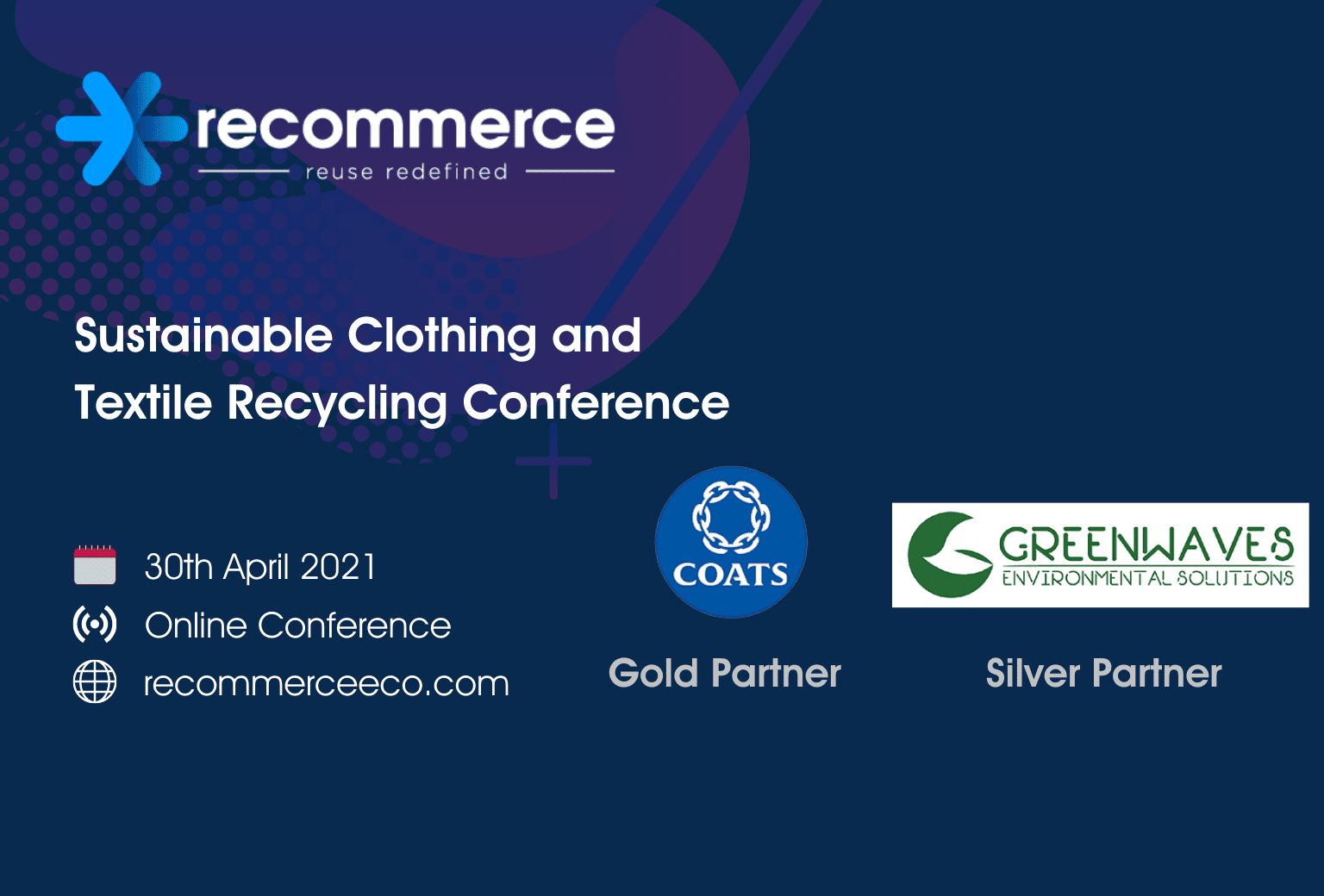Recommerce-Proudly presented the first edition of Sustainable Clothing and Textile Recycling Online Conference, on 30th of April, 2021, officially supported by the Ministry of Environment, Forest and Climate Change, Ministry of Electronics and Information Technology, Bureau of Indian Standards and Digital India.
This event is intellectualized and hosted by Recommerce in partnership with – COATS, our Gold Partner and Green Waves Environmental Solutions, our Silver Partner.
This one-day online conference witnessed 10+ speakers 90+ delegates across the globe, including recyclers, OEM‘s, C- suite executives, associations, government bodies, consultants, educational institutions, experts in recycling management, and environment-friendly technologies and research organizations.
Recommerce aims to encourage textile recycling, promote business cooperation and development in textile recycling, upcycling and sustainable fashion in India and worldwide.
Key discussions
- Textile recycling issues and technology
- Collaborative E orts in the fashion value chain to upscale cotton waste into fresh Liva Reviva viscose
- Textile & Apparel Waste Management: Concept, Adoption, and Challenges
- Policies and guidelines for Textile recycling certification provided by Central and State Pollution
- Control Board
- Sustainability & IP
- Fashion Sustainability – responsible design, consumption, and the SDG’S
Recommendations
- Ensure that the waste is collected at the source (at the place it is generated), like cutting table waste. Waste should not be mixed (polyester, cotton, viscose, blends all should be collected separately).
- The cotton waste that cannot be used to make any value-added process (like small pieces) can be upcycled into fresh fibers using the viscose process.
- Each type of waste should be sold separately with a label (Cotton, polyester, blends).
- At the garment design stage, the blends which are difficult to recycle should be avoided.
- We need to ensure that there is complete traceability and transparency and select only those recyclers who can ensure that they provide such assurances.

